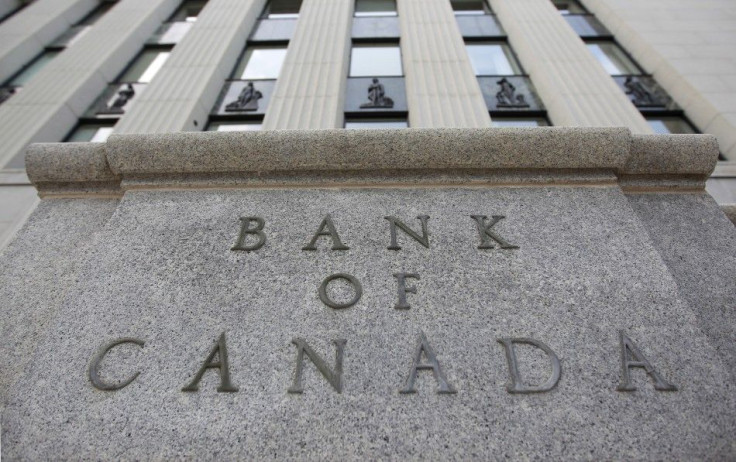Inflation jumps as rate pressure seen muted

Canada's annual inflation rate climbed to a higher-than-expected 3.1 percent in August, but analysts said on Wednesday this was unlikely to worry the Bank of Canada, which is more concerned about problems in Europe and the United States.
Market operators had expected the annual rate to rise to 2.9 percent from the 2.7 percent recorded in July. The rate had hit a 5-1/2 year high of 3.7 percent in May.
Such levels would normally spur the central bank to tighten monetary policy. But the bank, which expects inflation to gradually fall toward its 2.0 percent target, in no hurry to raise interest rates from near-record lows.
The Bank (of Canada) right now is more focused on growth prospects than the inflation numbers, and I think given the slower growth profile we and others are looking for that will probably stem any rapid rises in inflation, said Craig Wright, chief economist at the Royal Bank of Canada.
Bank of Canada Governor Mark Carney said on Tuesday that given the current global uncertainty, the bank had the flexibility to keep rates low even when inflation had hit the 2 percent target. He also said sluggish world growth would help dampen inflationary pressures in Canada.
The increase in the annual inflation rate was prompted in part by higher prices for passenger vehicles, electricity and insurance, Statistics Canada said.
Prices grew by 0.3 percent in August from July, greater than the forecast 0.1 percent advance. The annual core inflation rate, which excludes volatile items like gasoline, grew 1.9 percent in August from 1.6 percent in July.
Statistics Canada said energy prices had risen 13.4 percent during the 12 months to August, following a 12.9 percent increase in July.
(For the Bank) it's steady as she goes. I think just based on the tone of Mark Carney's comments yesterday, (they) remain very concerned about external risks, and spillover of the global challenges to Canada's growth prospects, said TD Bank deputy chief economist Derek Burleton.
The International Monetary Fund on Tuesday cut its forecast for Canadian growth this year to 2.1 percent from the 2.9 percent it predicted in June.
The Canadian economy shrank in the second quarter, its first quarterly fall since the 2008-09 recession, hurt by temporary factors such as the impact of Japan's earthquake and tsunami. Policymakers have warned that external factors will continue to weigh on growth.
The economic backdrop globally is still fraught with risk and the Bank (of Canada) has gone out of the way recently to note concern over the global economy, said Shane Enright, executive director of foreign exchange sales at CIBC World Markets.
It's a strong (inflation) number obviously but ... certainly the market is reacting like it's not going to change the Bank's thinking in the short term, he told Reuters.
The Canadian dollar briefly pared its losses against its U.S. counterpart after the data. But it later weakened below parity to the U.S. dollar.
Overnight index swaps, which trade based on expectations for the central bank's main policy rate, showed that after the inflation data traders priced in lower odds of a rate cut this year or next.
A Sept 7 Reuters poll showed most of Canada's primary securities dealers think the bank will not raise interest rates until the third quarter of 2012.
© Copyright Thomson Reuters {{Year}}. All rights reserved.





















